By Patricia Barganier and Alison Iavarone
Patricia Barganier is the founder of Barganier and Associates LLC — a national boutique firm that specializes in unclaimed property consulting for Fortune 500 companies. Alison is a CPA and CFE and a Director at Barganier and Associates LLC. Combined they bring over 50 years of expertise to unclaimed property process and reporting.
Barganier and Associates LLC (“Barganier”) assists clients with many types of unclaimed property matters from voluntary compliance, audit defense, consulting and annual reporting. One of the biggest questions a client will have to assess is whether to keep the unclaimed property reporting function inhouse (“insourcing”) versus hiring a consultant to handle the compliance function (“outsourcing”).
When determining the costs of insourcing versus outsourcing, a company may just look at the out-of-pocket costs. In this regard a company may compare the cost of compliance software versus the annual cost charged by the consulting firm hired to prepare the unclaimed property reports. However, there are many more factors to consider other than these fixed expenses.
The following details the expenses and well as opportunity costs to consider as the decision is made related to annual unclaimed property reporting: insourcing versus outsourcing.
Insourcing: What Factors Should be Considered
Oftentimes it is difficult to find someone in an organization who will want the added responsibility of preparing the unclaimed property reports. It may be thought of as a hot potato that no one wants to handle. This hot potato may end up in accounting, tax, treasury, or regulatory compliance. That being said, the employee assigned to handle unclaimed property compliance (“UP Manager”) typically has other responsibilities and priorities which may be more pressing than unclaimed property.
The following issues should be considered before an organization decides to in-source:
A part-time UP Manager has conflicting priorities and may not have the time to commit to unclaimed property.
A part-time UP Manager may not have time to keep up with the nuances of unclaimed property law in every jurisdiction and thus may not have the technical expertise required to manage the function corporate wide.
A part-time UP Manager may move on to other responsibilities and leave a vacuum in the unclaimed property reporting function.
A part-time UP Manager may not be aware of statutory exemptions and thus may lead to over-reporting of unclaimed property.
A part-time UP Manager may not have the breadth of experience to define or design the internal processes that minimize UP liability.
Outsourcing: The Benefits
There are many benefits when outsourcing the unclaimed property function to a UP Partner, as follows:
A UP Partner is fulltime professional organization dedicated to unclaimed property.
A UP Partner has the subject matter expertise and is constantly keeping up with statutory changes and state updates.
A UP Partner oftentimes has relationships with state representatives which may assist when matters or issues arise.
A UP partner will ensure that your organization is not over-reporting your unclaimed property and ensures that your organization takes advantage of all statutory exemptions and reductions.
A UP partner will analyze data for outliers or discrepancies in the data.
A UP partner will help assess unclaimed property issues with any reorganization changes.
A UP partner will help assess unclaimed property issues with new lines of business or business model changes.
A UP Partner has the breath of experience from several clients and potentially clients in similar lines of business and/or with similar issues.
A UP Partner frees up internal resource for other matters.
Finally, using a UP Partner is part of the internal control process implemented by the organization.
The Final Decision
Oftentimes, an organization thinks that outsourcing the compliance function will lead to the loss of a position and may choose not to do so. However outsourcing, as it relates to unclaimed property, is never about losing a position. An internal resource is always needed to be the liaison between the business units and the UP Partner. This person is instrumental in streamlining the compliance process by gathering the data into a single point of contact for the UP Partner.
Risk mitigation is the final item which should be considered as an organization decides to insource or outsource its unclaimed property compliance function. By using a UP Partner, an officer of the company can feel confident signing the annual reports. That the reports are prepare accurately and timely by an organization with subject matter expertise. A UP Partner will stand by the reports and be there should there be an audit in the future. A UP partner will ensure that if penalties and interest are assessed, the amounts will be minimized or possibly abated.
Reach out to the Barganier team today to determine whether an assessment of your organization’s compliance function is warranted. The Barganier team is certain that your organization will find value in our assessment and want to team with Barganier for your unclaimed property needs.



